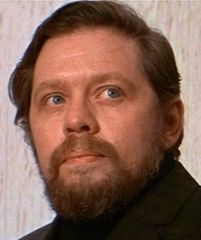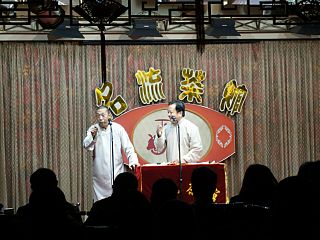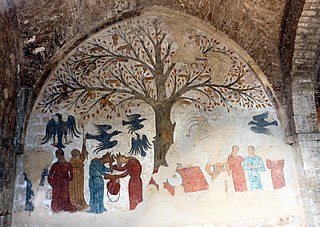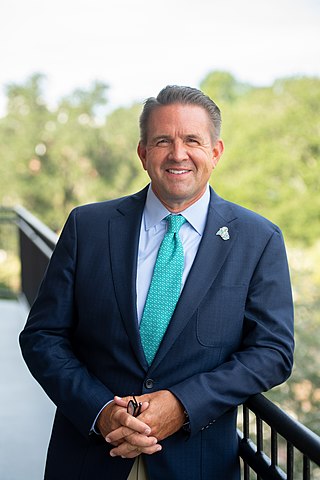
Stand-up comedy is a comedy performance to a live audience in which the performer, known as a comedian, comic or "stand-up", stands on a stage and delivers various humorous and satirical monologues, and occasionally also physical acts, typically involving no other props except a microphone and a stool. The performance is usually a rhetorical sketch with rehearsed scripts, but many comics employ live crowd interaction as part of their routine.

A comedian or comic is a person who seeks to entertain an audience by making them laugh. This might be through jokes or amusing situations, or acting foolish, or employing prop comedy. A comedian who addresses an audience directly is called a stand-up comedian.

A humorist is an intellectual who uses humor, or wit, in writing or public speaking, but is not an artist who seeks only to elicit laughter. Humorists are distinct from comedians, who are show business entertainers whose business is to make an audience laugh. It is possible to play both roles in the course of a career. A raconteur is one who tells anecdotes in a skillful and amusing way.

Eastern Kentucky University is a public university in Richmond, Kentucky. As a regional comprehensive institution, EKU also maintains branch campuses in Corbin, Hazard, Lancaster, and Manchester and offers over 40 online undergraduate and graduate options.

The tradition of humor in Judaism dates back to the Torah and the Midrash from the ancient Middle East, but generally refers to the more recent stream of verbal and often anecdotal humor of Ashkenazi Jews which took root in the United States over the last hundred years, including in secular Jewish culture. European Jewish humor in its early form developed in the Jewish community of the Holy Roman Empire, with theological satire becoming a traditional way of clandestinely opposing Christianization.

Severn Teakle Darden Jr. was an American comedian and actor, and a founding member of The Second City Chicago-based comedy troupe as well as its predecessor, the Compass Players. He is known from his film appearances for playing the human leader Kolp in the fourth and fifth Planet of the Apes films. His live comedy improv skit under the character of "Walther von der Vogelweide" was influential with two generations of comic performers.

Xiangsheng, also known as crosstalk or comic dialog, is a traditional performing art in Chinese comedy, and one of the most popular elements in Chinese culture. It is typically performed as a dialog between two performers, or rarely as a monolog by a solo performer, or even less frequently, as a group act by multiple performers. The Xiangsheng language, rich in puns and allusions, is delivered in a rapid, bantering style, typically in the Tianjin dialect. The acts would sometimes include singing, Chinese rapping, and musical instruments.

In comedy, a dick joke, duck joke, dork joke, penis joke, cock joke or knob joke is a joke that makes a direct or indirect reference to a human penis, also used as an umbrella term for dirty jokes. The famous quote from Mae West, "Is that a gun in your pocket or are you just excited to see me?" is cited as an example of a penis joke. The "dick joke" has been described as "often used as a metaphor for the male-defined nature of stand-up comedy". Dick jokes have also been noted to be both popular and effective with audiences:
Comics use what "works," and dick jokes are guaranteed to amuse audiences of both genders in a surprising variety of contexts. Simply put, dick jokes get the quickest and biggest laughs, and in stand-up comedy, size does matter.

George Francis Roper was an English comedian, best known for his appearances in the long-running UK television series The Comedians.
Pure Comedy is a Sirius XM Radio channel featuring family comedy and broadcasts on channel 98. The channel's slogan is "Comedy for Everyone." The comedy aired sometimes contains mild profanities and slightly risqué material, and is only very rarely considered offensive.

Jeanne Flinn Swanner Robertson was an American athlete, teacher, humorist, motivational speaker, YouTube personality, and Miss North Carolina 1963.

Karith Foster is an American comedian, speaker, television and radio personality, actress, author, and entrepreneur. In 2016, Foster founded the Foster Russell Family Foundation, a 501(c)(3) non-profit organization which is committed to "Inspiring free speech, social change and empowerment through education and mentorship."

Michael Taft Benson is an American academic administrator serving as the president and professor of history at Coastal Carolina University. He previously served as president of Eastern Kentucky University, Southern Utah University, and Snow College, and as special assistant to the president at University of Utah. He was appointed Visiting Professor within the Department of the History of Science and Technology at Johns Hopkins University in January 2020.

Comedy is a genre of fiction that consists of discourses or works intended to be humorous or amusing by inducing laughter, especially in theatre, film, stand-up comedy, television, radio, books, or any other entertainment medium. The term originated in ancient Greece: In Athenian democracy, the public opinion of voters was influenced by political satire performed by comic poets in theaters. The theatrical genre of Greek comedy can be described as a dramatic performance pitting two groups, ages, genders, or societies against each other in an amusing agon or conflict. Northrop Frye depicted these two opposing sides as a "Society of Youth" and a "Society of the Old". A revised view characterizes the essential agon of comedy as a struggle between a relatively powerless youth and the societal conventions posing obstacles to his hopes. In this struggle, the youth then becomes constrained by his lack of social authority, and is left with little choice but to resort to ruses which engender dramatic irony, which provokes laughter.
Tommy Moore is an American comedian, clown, and motivational speaker versed in the styles of vaudeville and Catskill comedy. His act is filled with classic jokes, original material, props, costumes, improv, and misguided magic, drawing heavily on audience participation. Billed as The Professor of Fun, he has been called the "man who put the FUN back in Funny".

Frances Lee Strong, better known by her stage name Grandma Lee, was an American stand-up comedian who was a talent show contestant on America's Got Talent in 2009. She began performing when she was in her 60s and became known for her off-color humor.

Amir Shmuel Blumenfeld is an Israeli-American comedian, actor, writer, television host, and member of the American comedy duo, Jake and Amir. Born in Israel, he moved to Los Angeles when he was two, and was hired by the New York City-based CollegeHumor in 2005. As well as contributing to its books and articles, he has written and starred in original videos for the comedy website—appearing in series such as Hardly Working and Very Mary-Kate—and was a cast member on its short-lived MTV program The CollegeHumor Show.
Lenny Schultz is an American retired comedian who performed during the 1970s on television and at comedy clubs in New York City. His madcap style of improvisational comedy influenced other comedians such as Robin Williams, Gallagher, Carrot Top, and David Letterman.

The Bible and humor is a topic of Biblical criticism concerned with the question of whether parts of the Bible were intended to convey humor in any style. Historically, this topic has not received much attention, but modern scholars generally agree that humor can be found in biblical texts.
The roots of modern stand-up comedy began in 1840s minstrel shows that perpetuated racist stereotypes in the United States. There were, however, African-American and other all-black minstrel groups which formed and toured. American vaudeville emerged around the same time and along with the later developed Chitlin' Circuit, produced the founders of this form of entertainment. Early stand-up comedians spoke directly to the audience as themselves without props or costumes, which distinguished these acts from vaudeville performances. These comics stood in front of the curtain during their shows, like early 20th century "front cloth" stand-up comics in Britain and Ireland whose numbers allowed the stage behind them to be re-set for another act.















